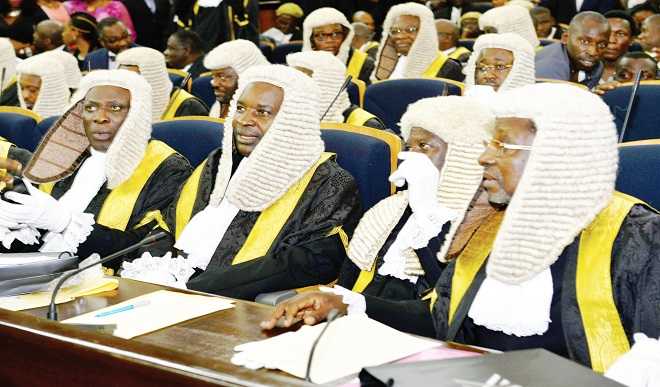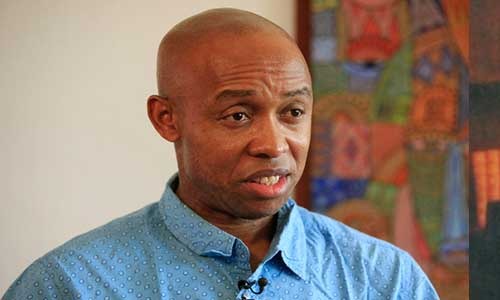“The mind grows old, no less than the body.” Aristotle, The Politics, Book II, Ch. 9, 146 (Penguin Classics, 1981)
A little over two decades away from its perception as a shrine for the resolution of the most rarefied disputes in the country, the Supreme Court of Nigeria played host to a Nigerian drama. With less than two years to go before retirement, a senior justice of that court approached then-Chief Justice of Nigeria (CJN) Mohammed Lawal Uwais with a discovery. A wise, old uncle of his from the village in one of the states of southern Nigeria had just informed him, the Justice disclosed, that there had been an error in the computation of his age as he had, indeed, been born two years later than the age disclosed in his documentation. He sought the consent of CJN Uwais for the rectification of that little error.
The CJN doubted that it was within his power to consent to the rectification sought. But before making up his mind, he had two requests to make of the Justice who approached him. First, he asked that the request be reduced formally into writing and that thereafter it should be circulated to all the other Justices of the court for their comments. This process effectively killed the request. By the time the written application arrived at the desk of the Chief Justice with the comments of his peers, it was clear that his application for age rectification was dead on arrival.
England, from which Nigeria inherited much of the traditions of its judiciary, did not always have a compulsory retirement age for judges. The consequences were sometimes grim. Edward Foss tells the story in his Biographia Juridica of Salathiel Lovell, appointed a Baron of the Court of Exchequer “on the verge of ninety years of age” in 1708, whose judicial tenure (which lasted for the next five years) “was distinguished by his want of memory.”
England only introduced the compulsory age of retirement for judges in 1959. Judges appointed before then could serve for life. The last judge in that category was the famous Alfred Thompson Denning. Lord Denning, who had jocularly claimed to have “every Christian virtue, except resignation” was forced to do just that at the age of 83 in 1982 because of “illiberal comments in his declining years.”
By contrast, independent Nigeria always had a retirement age for judges. In a country with a notoriously perfunctory attitude to documentation and evidence, however, attitudes to proof of date of birth and age in Nigeria have always been shifty, and judges have proved to be avid practitioners in the game of genealogical chicanery. The result can sometimes be both chastening and dramatic.
In a State in southern Nigeria, not too long ago, the local youths had to be mobilised on the night before a high society funeral to mop up all the posters of the deceased on the road to and around his village, so they could be promptly pulped. The elder brother of the dead man, a serving judge of a state high court, had arrived home for the funeral to the sight of posters announcing the age of his late younger brother as 71 at a time when the judicial retirement age was 65. He was nothing if not genuine in his desire to spare his invited judicial peers, due to arrive for the funeral the following morning, the agony of the implausibility of how he could still be a serving judge when his deceased younger brother was already over six years above the judicial age of retirement.
Imo and Yobe States have had a particularly hard time of judges messing about with their age. In Yobe State, two Grand Khadis in succession have suffered the indignity of being caught age racketeering. In 2020, the National Judicial Council (NJC) found that over two installments of falsification, Grand Khadi Shu’aibu Talba reduced his age by four years from 1955 to 1959.
Last November, the same NJC found that the man who succeeded Talba as Grand Khadi of Yobe State, Babagana Mahdi, was at least eight years over the eligible age at the time of his appointment into the position, having falsified his own age by at least 12 years. In effect, the NJC’s decision to approve his appointment to the office was unlawful.
On 26 June 2025, the NJC recommended the compulsory retirement of five judges of the High Court of Imo State and four judges of the Customary Court of Appeal of the same state whom it “found to have altered their dates of birth in their official records to confer on themselves the undue advantage of staying longer in service.”
This was the latest phase in a growing scandal of judicial age racketeering in the state. Last November, the NJC similarly required the compulsory retirement of the State’s Chief Judge, Theresa Chikeka, whom it found to have falsified her age by two years. In her case, as with the Grand Khadis of Yobe State, the Council also ordered the refund to the public purse of the excess emoluments paid to her for the years during which she should not have continued to serve as a judge.
The statistics suggest that this practice of age falsification among judges could be more widespread. In July 2013, the NJC ordered the compulsory retirement of Shadrack Nwanosike, then acting Chief Judge of Abia State, for age falsification.
Three years later, in 2016, it was the turn of Idris Evuti and Tanko Yusuf Usman, both judges of the High Court of Niger State, whom the Council found to have changed their ages by two and a half years and one year respectively.
In 2018, the NJC retired Joshua Ikede, a judge of the High Court of Delta State, whom it similarly found guilty of age falsification.
In 2020, it was the turn of Francis Abosi, Acting President of the Customary Court of Appeal of Imo State, who altered his age by eight years, and Abdulkareem Babatunde Abdulrasaq, judge of the High Court of Ogun State, who falsified his age by two years.
Tanko Muhammad, the CJN who presided over the November 2020 decision to sack Abdulrasaq, Abosi, and Talba from the bench, was himself the focus of serious but unresolved allegations of age falsification. In May 2019, the High Court of the Federal Capital Territory dismissed a case by Tochi Michael, whose claim was that CJN Muhammad had falsely altered his date of birth from 31 December 1950 to 31 December 1953.
The court held that Tochi lacked the standing to bring the case, having failed to show how he “has been injured by the defendant.” In other words, the court decided that it did not have jurisdiction over the case. As such, it disavowed the power to delve into Tochi’s claims and, therefore, lacked the power to dismiss them. Yet, Danlami Senchi, the judge who sat over the matter, didn’t just dismiss the case, he imposed punitive costs on Tochi and referred his lawyer for disciplinary investigation, ultimately by the same CJN whose age was said to have been falsified.
In June 2022, Tanko Muhammad was forced by “deteriorating health conditions” to resign as CJN. He has hardly been seen in public since then.
A judge who sits beyond the lawful judicial age is a judicial impostor. The costs on society and litigants could be colossal. It is a crime of fraud and a theft of judicial remuneration. Even worse, the person afflicts the judicial process with corrosive reputational hazards.
The High Court judgment in the case of CJN Muhammad was like a cover-up. It turns out that Tochi’s claim was very well-founded. Tonnie Iredia points out that “before Tanko Muhammad became a judicial officer, all his records, including the WAEC certificate, showed that he was born in 1950 and not 1953.” The NJC can no longer afford to be half-hearted on the issue of judicial age racketeering. It requires a more systematic response.
A lawyer and a teacher, Odinkalu can be reached at chidi.odinkalu@tufts.edu
![]()








